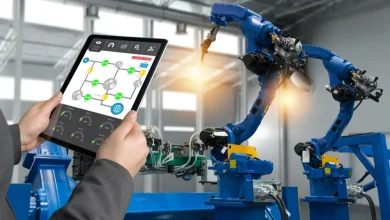Personalised Learning Analytics: Data Science in EdTech

In an era where digital transformation is sweeping across industries, education technology (EdTech) is no exception. One of the most transformative forces driving EdTech innovation today is Personalised Learning Analytics, which leverages the power of data science to customise educational experiences to each student’s learning style, pace, and preferences. Traditional education methods often adopt a one-size-fits-all approach. Still, with the rise of digital platforms and real-time data tracking, it’s now possible to tailor education to suit individual learners. At the core of this revolution are skilled professionals, many of whom begin their journey through data scientist classes, where they learn to interpret and act on complex educational data.
What is Personalised Learning Analytics?
Personalised learning analytics is a subfield of learning analytics that focuses on creating individualised learning experiences by analysing data on students’ performance, behaviour, and engagement. This includes tracking students’ quiz results, time spent on lessons, interaction patterns, and even emotional responses through biometric feedback. The goal is to identify strengths, weaknesses, learning preferences, and potential risks early, enabling educators and platforms to intervene proactively.
These analytics help recommend the most effective content for each learner, determine optimal study times, and even suggest peer collaboration opportunities. For example, a student struggling with algebra might be guided through simpler sub-concepts or receive interactive visualisations tailored to their learning style. Such interventions not only improve academic performance but also boost confidence and motivation.
The Role of Data Science in EdTech
Data science is the backbone of personalised learning analytics. By collecting, processing, and analysing vast amounts of educational data, data scientists can uncover insights that would be impossible through manual assessment. Advanced machine learning models are trained to recognise learning patterns and suggest custom learning paths for each student.
EdTech platforms like Coursera, Khan Academy, and BYJU’S use sophisticated algorithms to analyse learner behaviour and personalise content delivery. From recommendation engines that suggest the next best course to AI-driven chatbots that offer 24/7 tutoring support, data science is transforming passive content into interactive and adaptive learning environments.
These systems often rely on supervised learning models, natural language processing (NLP), and clustering algorithms to achieve personalisation. For instance, NLP enables intelligent grading of written assignments, while clustering groups students with similar learning patterns to offer collaborative opportunities or targeted assistance.
Midway through their educational or professional journey, many aspiring professionals turn to data scientist classes to gain hands-on exposure to these techniques, equipping themselves with the tools needed to develop or improve such EdTech platforms.
Key Benefits of Personalised Learning Analytics
1. Improved Learning Outcomes
When students receive content aligned with their understanding and pace, their retention and comprehension levels improve significantly. The system can identify when a student is lagging behind and automatically adjust the curriculum.
2. Proactive Intervention
Analytics can flag at-risk students who may need additional help. Educators and guardians can be alerted before the student reaches a critical point of failure.
3. Resource Optimisation
Schools and institutions can allocate resources more effectively by identifying which tools, courses, or teaching methods produce the best results.
4. Enhanced Engagement
Personalised learning keeps students motivated by offering them challenges at the right level of difficulty, thus avoiding both boredom and frustration.
5. Real-Time Feedback
Students and teachers can get instant insights into progress, allowing for on-the-go adjustments to the learning plan.
Challenges and Ethical Considerations
Despite its benefits, personalised learning analytics comes with challenges:
- Data Privacy: Student data is highly sensitive. Ensuring compliance with regulations such as GDPR and FERPA is crucial.
- Bias in Algorithms: Poorly trained models can reinforce existing biases, leading to unfair treatment or misclassification.
- Accessibility: Not all students have access to devices or stable internet connections, which can widen the digital divide.
- Teacher Training: Educators need to be trained to understand and use analytics effectively, a gap that Data Science Course in Bangalore offerings are beginning to address through dedicated EdTech modules.
The Indian EdTech Scene and Data Science
India is home to one of the world’s fastest-growing EdTech sectors. Platforms like Unacademy, Vedantu, and BYJU’S have harnessed data science to provide quality education to millions of students, especially during the pandemic. The vast and diverse Indian student population presents unique challenges that data science helps overcome through localisation and personalisation.
The demand for data science professionals in the EdTech domain is at an all-time high. Mid-career professionals, educationists, and engineers are increasingly enrolling in programs to gain the analytical skills necessary to drive educational innovation. These courses often include case studies and capstone projects based on real EdTech datasets, preparing learners to tackle real-world challenges head-on.
Future of Personalised Learning Analytics
The integration of artificial intelligence and augmented reality (AR) into personalised learning will elevate the user experience even further. Imagine a system that not only tracks your progress but also adjusts a virtual classroom environment based on your mood and focus level. As we move toward such futuristic learning scenarios, the collaboration between data scientists, educators, and psychologists will become even more crucial.
The role of ethics will also gain prominence, as educators and technologists work together to ensure that data-driven learning remains fair, inclusive, and transparent. With increased emphasis on lifelong learning and upskilling, personalised learning analytics will also expand beyond K-12 and university settings to adult education and corporate training.
Conclusion
Personalised learning analytics marks a significant shift in the educational landscape, making learning more inclusive, efficient, and responsive to individual needs. With the EdTech sector booming and digital learning becoming the norm, data science is not just a technological advantage—it’s a necessity. Professionals looking to contribute to or benefit from this trend would do well to explore a Data Science Course in Bangalore, where an industry-aligned curriculum and hands-on training prepare learners for real-world challenges. As we continue to refine and expand the capabilities of personalised learning analytics, one thing is clear: the future of education lies in intelligent, data-driven personalisation.
For more details visit us:
Name: ExcelR – Data Science, Generative AI, Artificial Intelligence Course in Bangalore
Address: Unit No. T-2 4th Floor, Raja Ikon Sy, No.89/1 Munnekolala, Village, Marathahalli – Sarjapur Outer Ring Rd, above Yes Bank, Marathahalli, Bengaluru, Karnataka 560037
Phone: 087929 28623
Email: enquiry@excelr.com




